Richard Tuttle / A Drawing Retrospective
Samuel Beckett referred to commentaries on art as a calmative (S.B. Das Gleiche nochmals anders: Texte zur Bildenden Kunst, 2000). Richard Tuttle values talking about art. In his exhibitions, he likes to stand in front of his works and discuss them. His commentaries rebut and affirm the remark by Beckett by taking paradoxical detours and by confounding and disconcerting with their nuanced differentiation and detail. Whether direct pathways or circuitous detours, when Tuttle works and when he talks he is always in motion. The important thing is that walking such a fine line leads to uncharted territory. Whoever heads down this path does so at his own risk, for there are no guaranteed certainties.
Language, whether spoken or written, usually has the fatal tendency to anticipate meaning, fake comprehension, to thrust itself ahead of the works. More and more, the well-intentioned message and symbolic sublimation become identified as the origin and sufficient legitimation of the will to artistic expression. Such gestures ostensibly accompany and anticipate global world affairs. This plausible reductionism, allowing the extraction of entire lines of development from nothing but footnotes, removes the actual artifact from the focus of attention.
Richard Tuttle is the antipode of such a view of art and narrative strategy. With his delicate, vulnerable works, he creates facts of a different kind. His works owe their remarkable precision to a mode of action that reflects and registers each and every procedure. Metaphorically they cannot be deciphered and they remain in a state of intimation, pointing to their transcendence. The curious things or notations nevertheless still demand full attention. The precise seeing, the precise observation of all that is present here within a small space serve as the precondition for an adequate reception of this art.
Each new work group by Richard Tuttle gradually extricates itself from an initial phase of absence of any likelihood of art. Is it a certainty that time and again, art must begin where art does not (yet) exist? In any case, it is hard work for the artist to bind an initial material construct to a field of signs that is all his own. Or, more precisely, material, form and sign ultimately constitute a unity in the work with each aspect owing its formation to the other aspects.
Drawing – Richard Tuttle believes his entire oeuvre can be subsumed by this term, this activity. ‘Drawing’ must not be understood as a convention or acquired skill. It is therefore apt that our exhibition presents drawings and works on paper from over forty years and attests to the paramount importance of Richard Tuttle’s oeuvre as a graphic artist.
In May 1974, the first exhibition of Richard Tuttle was held at Annemarie and Gianfranco Verna. This current retrospective of drawings makes a total of seventeen solo presentations of the artist. Multiple publications on his work and a number of artist’s books have accompanied their collaboration over the years.
With the major retrospective curated by Madeleine Grynsztejn for the San Francisco Museum of Modern Art in 2005 and shown through 2007 at important American museums in New York, Des Moines, Dallas and Chicago, the influence and standing of Richard Tuttle is clearly established. Yet the Richard Tuttle phenomenon is one that can never be definitively isolated, as made plainly evident by the new works in our exhibition.
Installation views
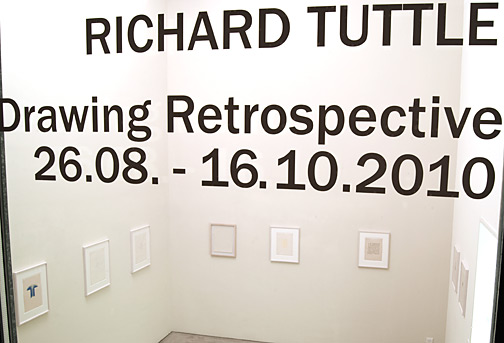
Installation view room 4
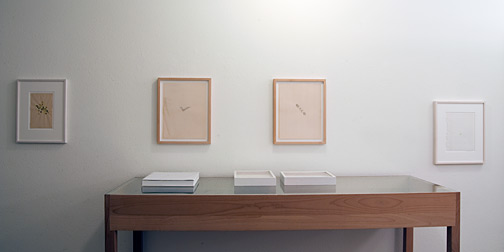
Installation view (office room)
from left to right:
Checkerboard Series (4)
1968
Beginning of Spiraling
1974
Grey Bar
1974
Confirmation Series (2)
1976
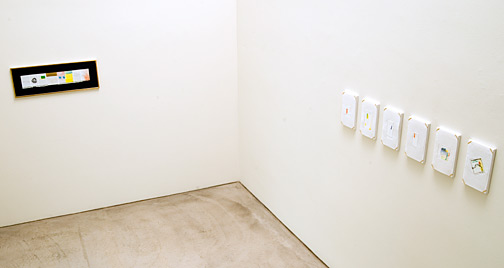
Installation view room 1
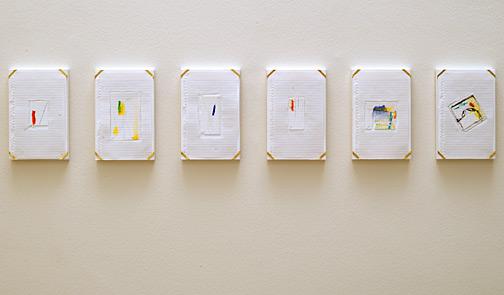
Installation view room 1
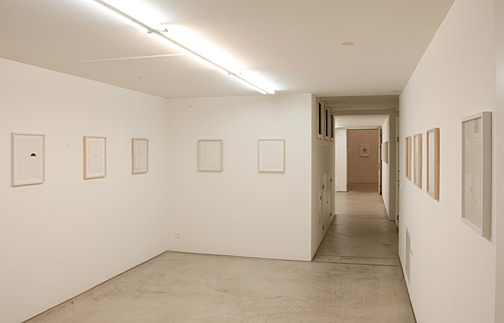
Installation view room 2
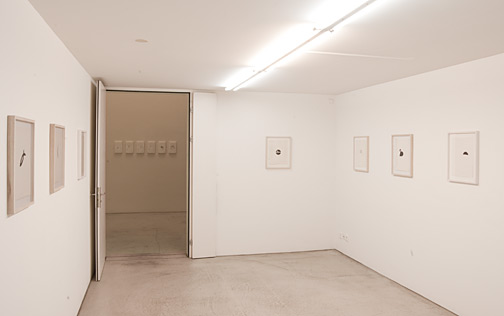
Installation view room 2
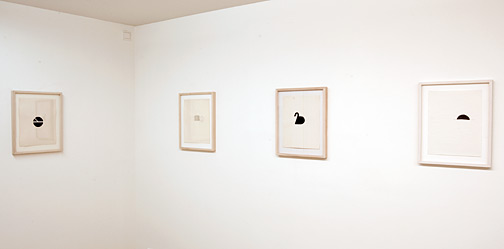
Installation view room 2
from left to right:
PT Drawing No. 31
1974
How Paint Meets Line
1971
How Paint Meets Line Group (3)
1974
Untitled
1975
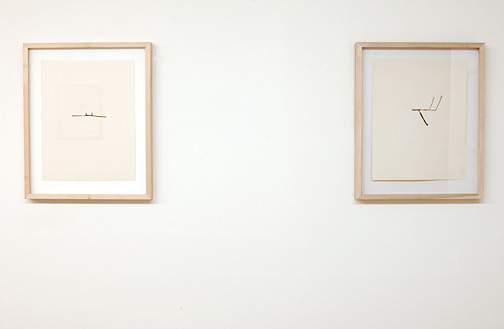
Installation view room 2
from left to right:
Intersecting Lines
1974
Study for Sculpture (2)
1974
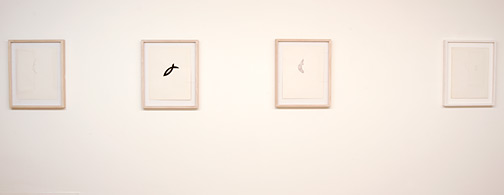
Installation view room 2
from left to right:
Untitled #3
1973
Untitled #1
1973
Untitled #2
1973
Center Point Work (5)
1975
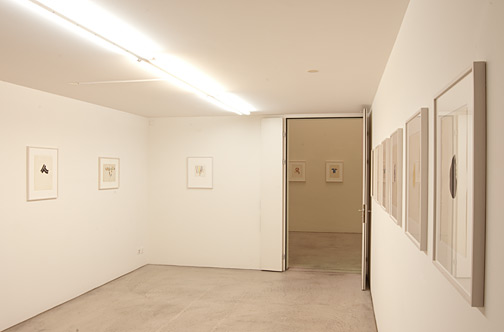
Installation view room 3
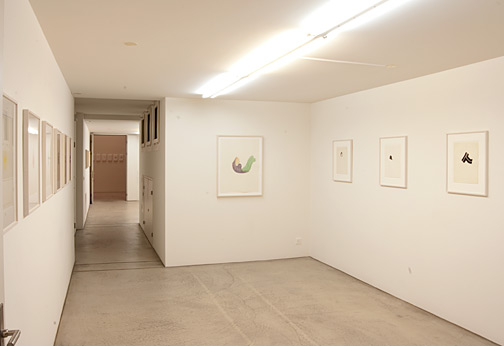
Installation view room 3
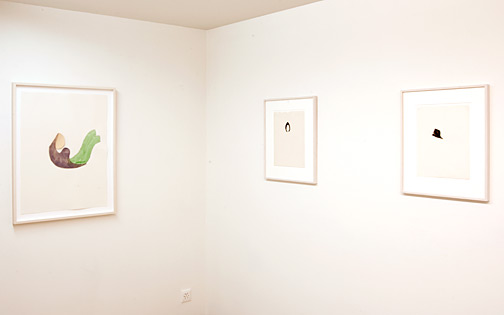
Installation view room 3
from left to right:
Untitled
1979
Drawing with Three Ends
1974
Ahingus
1974
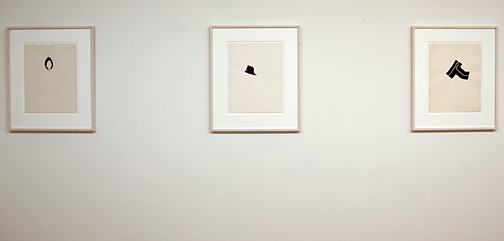
Installation view room 3
from left to right:
Drawing with Three Ends
1974
Ahingus
1974
Study for ”Acropolis“
1974
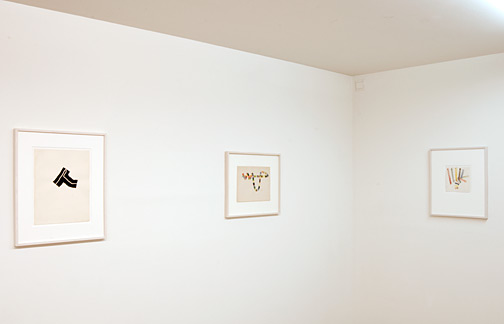
Installation view room 3
from left to right:
Study for Sculpture (2)
1974
Stacked Color Series (1)
1969
Stacked Color Series (6)
1970
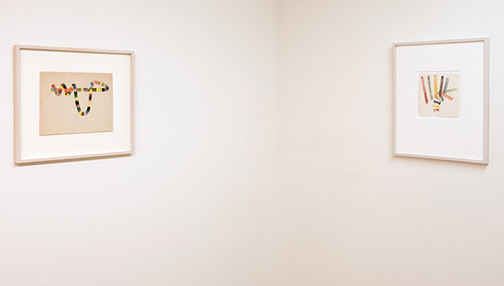
Installation view room 3
from left to right:
Stacked Color Series (1)
1969
Stacked Color Series (6)
1970
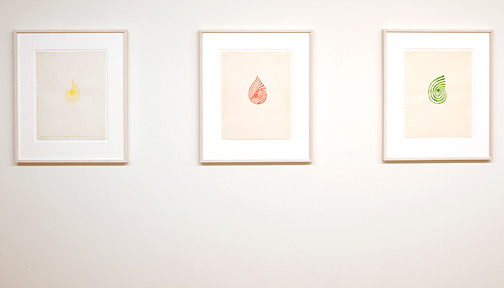
Installation view room 3
from left to right:
Rendering for Six of Thirteen Spiral Drawings
1973
Red Spiral Drawing
1973
Green Spiral Drawing
1973
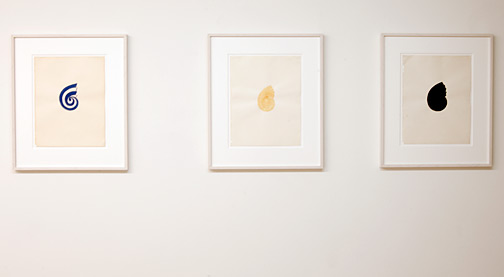
Installation view room 3
from left to right:
Blue Spiral Drawing
1973
Orange Spiral Drawing
1973
Black Spiral Drawing
1973
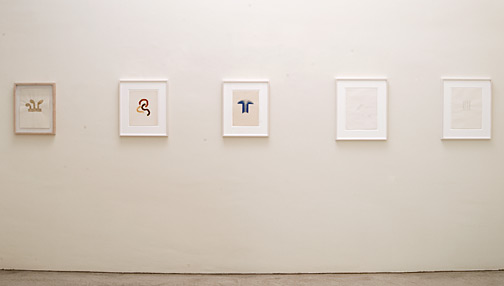
Installation view room 4
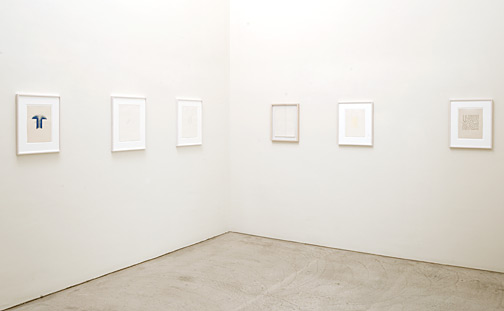
Installation view room 4
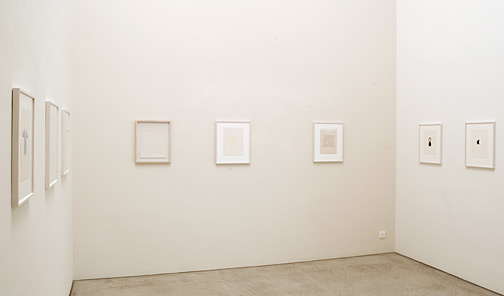
Installation view room 4
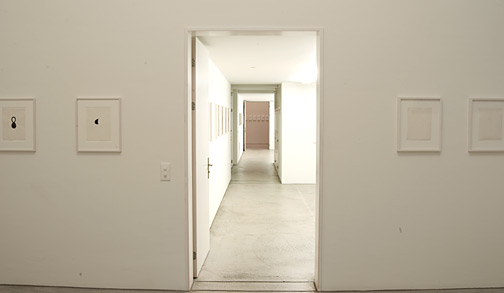
Installation view (view from room 4 to room 1)
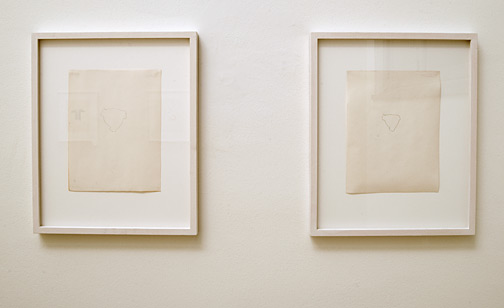
Installation view room 4
from left to right:
Belmore
1971
Belmore
1971
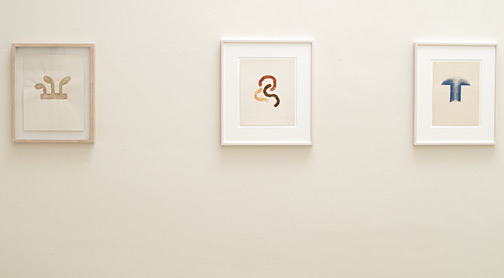
Installation view room 4
from left to right:
How Paint Meets Line
Group (5)
1974
Untitled
1970
Composition on White Paper
1969
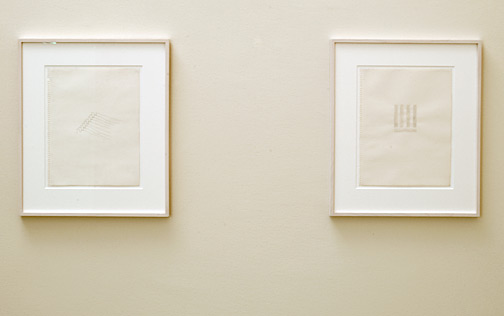
Installation view room 4
from left to right:
Untitled
(10th of 10 Summer, 1973)
1973
Untitled
(2nd of 10 Summer, 1973)
1973
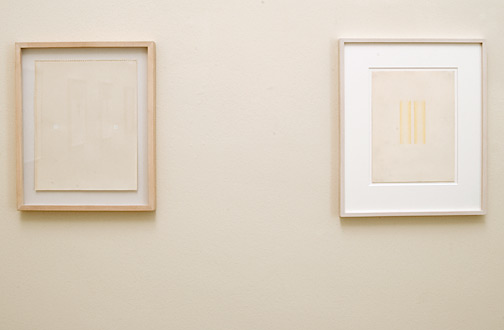
Installation view room 4
from left to right:
Untitled
1974
Yellow Verticals
1969
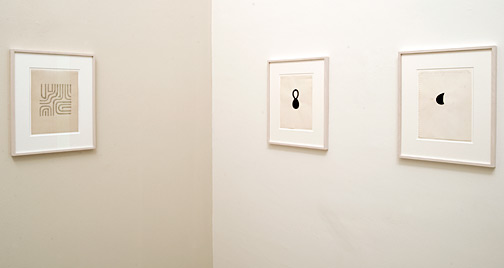
Installation view room 4
from left to right:
Double Maximum
1969
Belmore
1971
Untitled
1973
Works
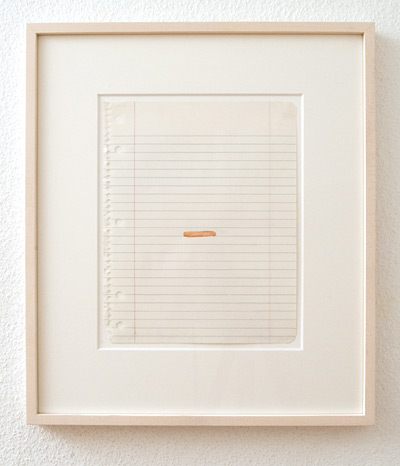
Confirmation Series (10)
1976
25.4 x 20.2 cm
pencil and gouache /
brown on paper
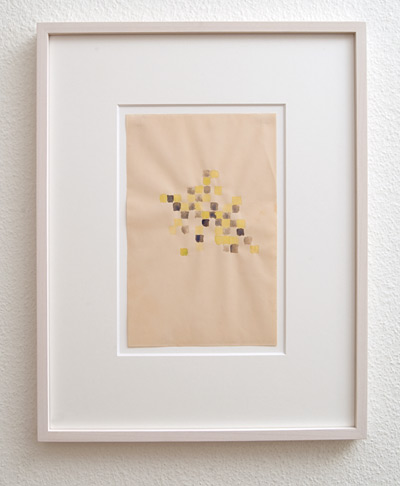
Checkerboard Series (4)
1968
22.9 x 14.5 cm
yellow and purple watercolor on paper
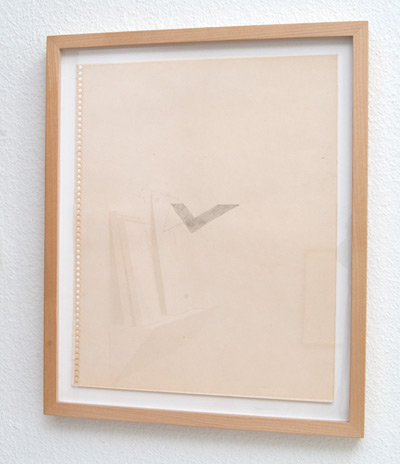
Beginning of Spiraling
1974
35.6 x 28 cm
pencil and grey ink on paper
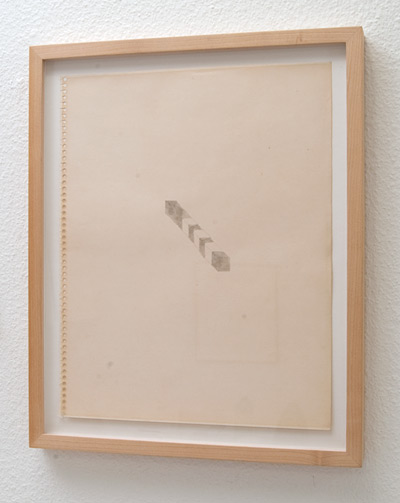
Grey Bar
1974
35.6 x 28 cm
pencil and watercolor on paper
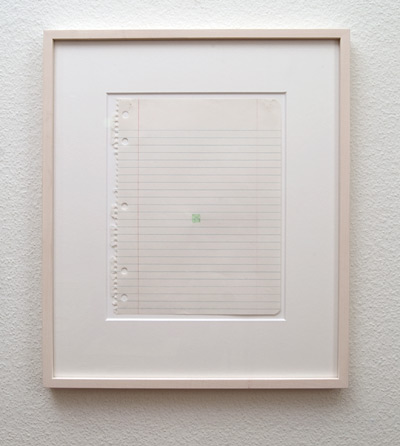
Confirmation Series (2)
1976
25.4 x 20.2 cm
pencil and gouache /green on paper
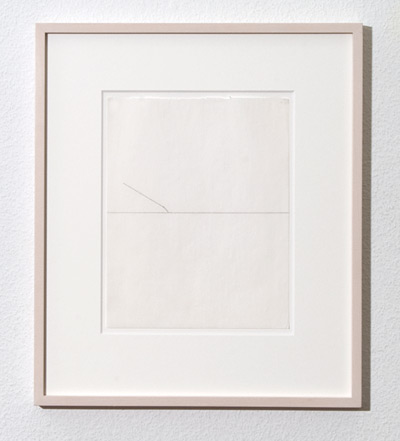
Line
1976
25.3 x 20.3 cm
pencil on paper
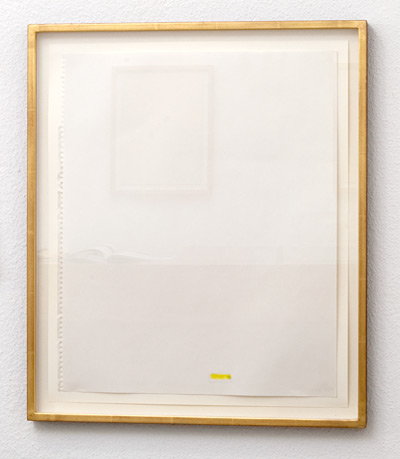
Florida Works (20)
1975
43.2 x 35.5 cm
pencil and watercolor/yellow on paper

from left to right:
Indianapolis, 5
Indianapolis, 6
Indianapolis, 7
Indianapolis, 8
Indianapolis, 13
Indianapolis, 14
all 1994
25.4 x 16.8 x 1.9 cm
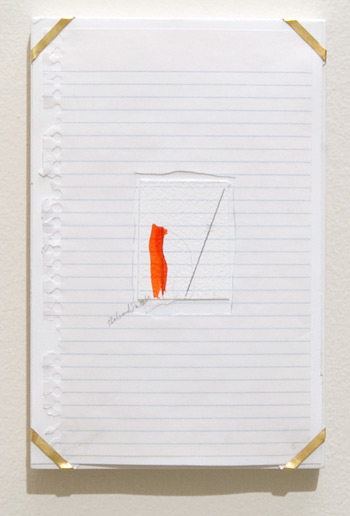
Indianapolis, 5
1994
26 x 16.8 x 1.9 cm
archival paper, colored pencil, gouache, notebook paper, pencil, watercolor paper and artist’s frame with gold hardware
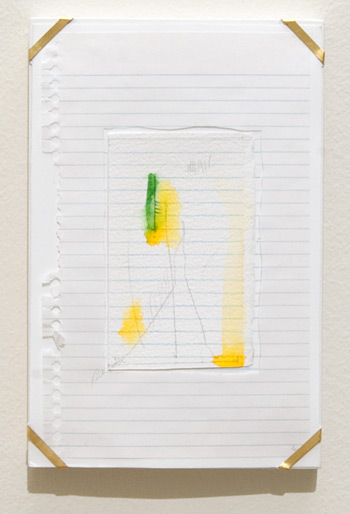
Indianapolis, 6
1994
26 x 16.8 x 1.9 cm
archival paper, colored pencil, gouache, notebook paper, pencil, watercolor paper and artist’s frame with gold hardware
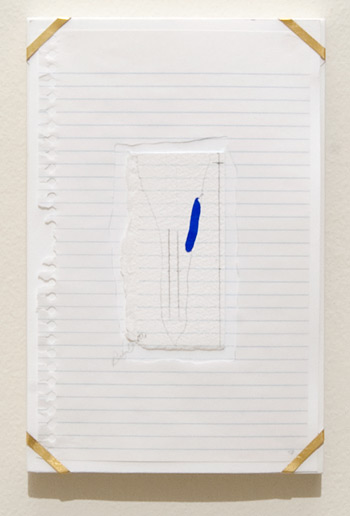
Indianapolis, 7
1994
25.7 x 16.8 x 1.9 cm
archival paper, colored pencil, gouache, notebook paper, pencil, watercolor paper and artist’s frame with gold hardware
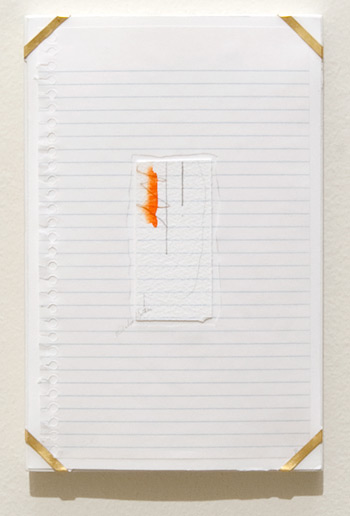
Indianapolis, 8
1994
25.4 x 16.8 x 1.9 cm
archival paper, colored pencil, gouache, notebook paper, pencil, watercolor paper and artist’s frame with gold hardware
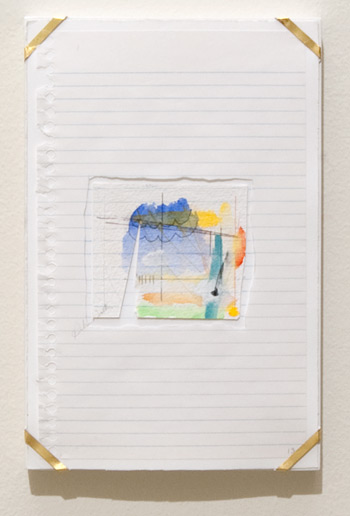
Indianapolis, 13
1994
25.4 x 16.8 x 1.9 cm
archival paper, colored pencil, gouache, notebook paper, pencil, watercolor paper and artist’s frame with gold hardware
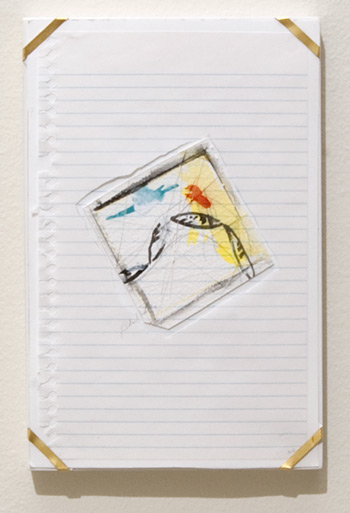
Indianapolis, 14
1994
25.4 x 16.8 x 1.9 cm
archival paper, colored pencil, gouache, notebook paper, pencil, watercolor paper and artist’s frame with gold hardware
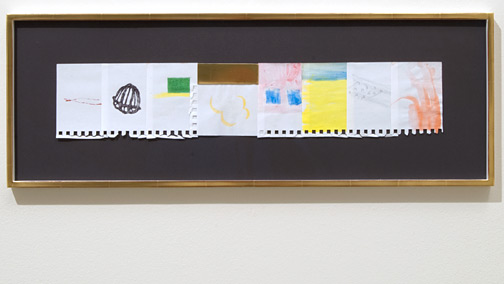
Rest on the Flight to Egypt
2009
29.5 x 82.5 cm
watercolor, acrylic, graphite and goldleaf on paper on cardboard
(in artists frame)
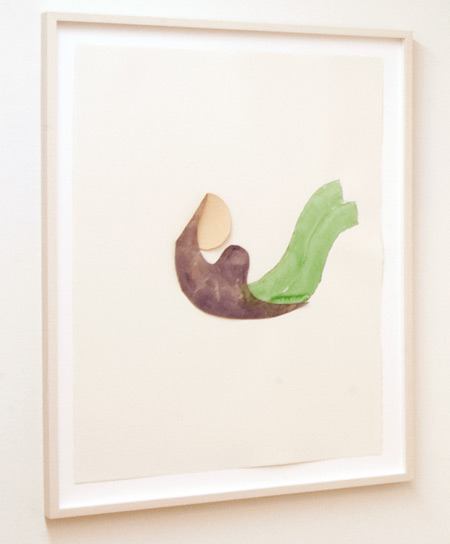
Untitled
1979
74.9 x 56.5 cm
pencil and watercolor on paper
collage
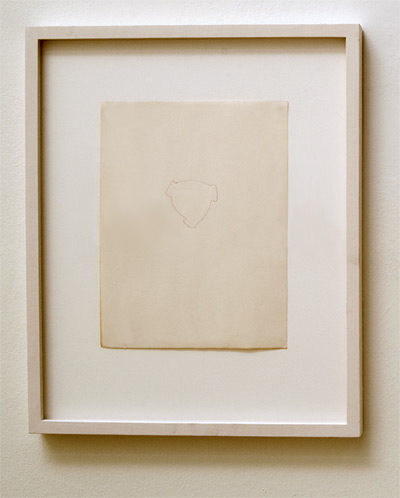
Belmore
1971
27.9 x 21.8 cm
pencil on paper
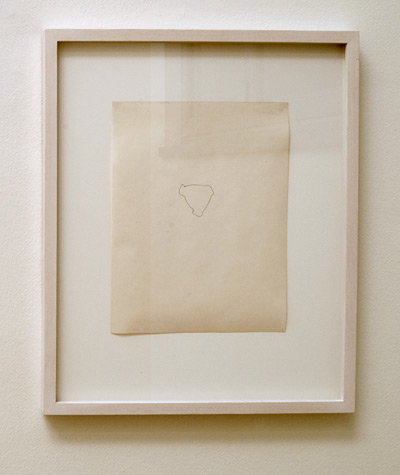
Belmore
1971
27.9 x 21.8 cm
pencil on paper
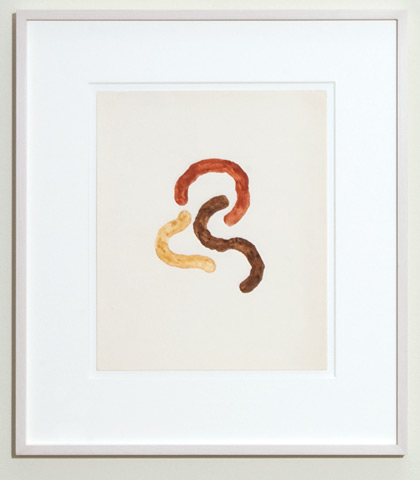
Untitled
1970
30.7 x 25.4 cm
english watercolor
New
Exhibition
Dan Flavin (1933–1996) and Will Insley (1929–2011)
March 6 to April 26, 2024
New publications
James Bishop
James Bishop
Publisher: ER Publishing, Edited by Molly Warnock
Joseph Egan
Joseph Egan and Anton Himstedt: Common Ground
Publisher: Josef Albers Museum Quadrat Bottrop, Ulrike Growe
Exhibitions / Insight
INSIGHT #3 spotlights the graphic work of Fred Sandback through three examples from 1974 and 1982.
Joseph Egan, Ptolemäus: Die Welt im Griff? Antike Kartographie und zeitgenössische Kunst, Kunsthaus Grenchen
3. März bis 26. Mai 2024
Dan Flavin, Widmungen aus Licht, Kunstmuseum Basel
2. März bis 18. August 2024
Rita McBride, Momentum,
Dia Beacon, Beacon, NY,
July 1, 2023 to January 2025
Fred Sandback, Kurt Büsser ermöglicht... Erich Buchholz und Fred Sandback, Museum Wiesbaden
19. Januar bis 14. April 2024
Sol LeWitt (1928–2007)
A Wall Drawing Retrospective
Yale University Art Gallery and Williams College Museum of Art
November 16, 2008 – 2033

